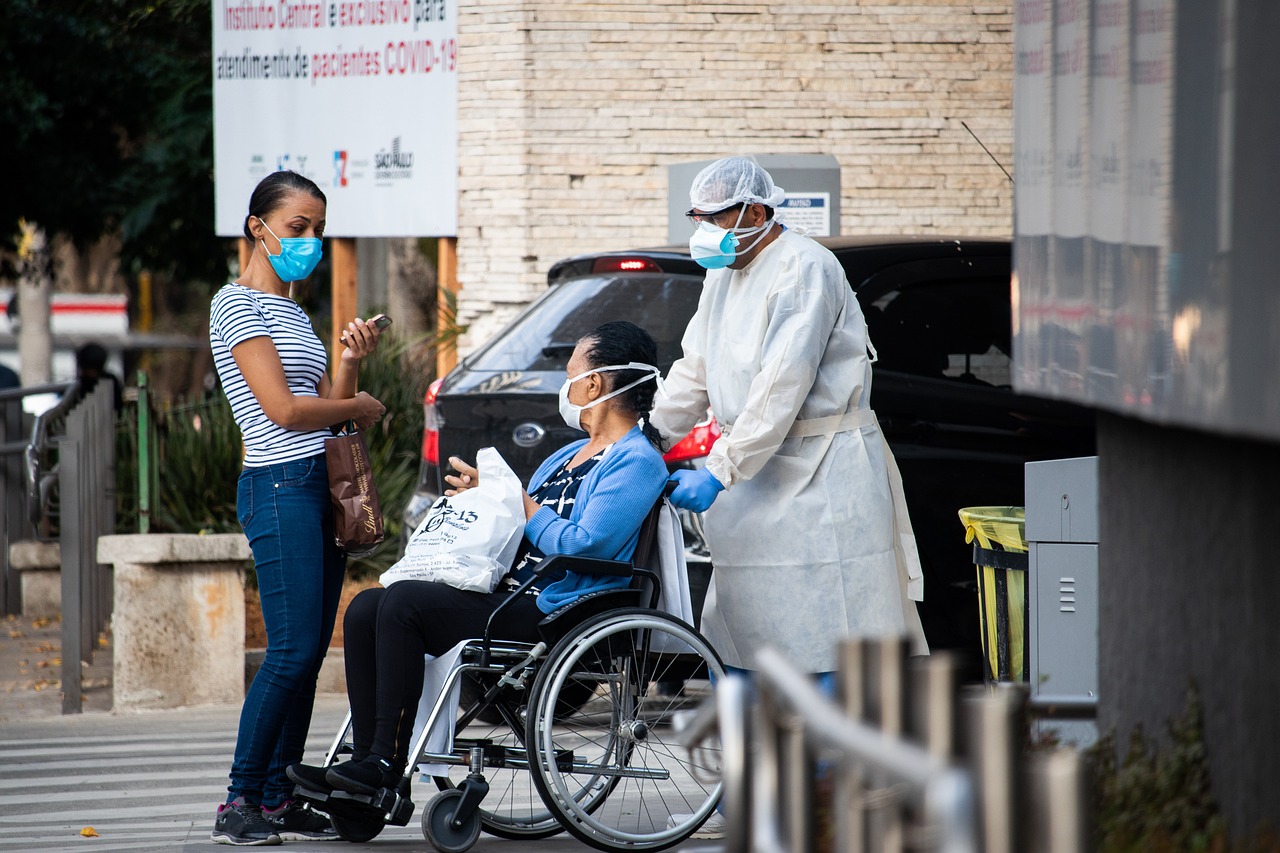Book Appointment Now

The Role of Community Health Nurses in Promoting Vaccination Awareness
Vaccination is one of the most effective public health measures for preventing disease, reducing morbidity and mortality, and improving global health outcomes. Despite its proven benefits, vaccine hesitancy has emerged as a significant public health challenge, fueled by misinformation, mistrust, and cultural beliefs. Community health nurses (CHNs) play a pivotal role in promoting vaccination awareness and addressing vaccine hesitancy through education, advocacy, and tailored community outreach. This essay examines the strategies used by CHNs to combat vaccine hesitancy, emphasizing their contributions to increasing immunization coverage and building trust within communities.
Our nursing experts can deliver 100% custom paper about the role of community health nurses combating vaccine hesitancy according to your order instructions.
Write my nursing essay
Vaccine Hesitancy: An Overview
Definition and Causes
The World Health Organization (WHO) defines vaccine hesitancy as the delay in acceptance or refusal of vaccines despite the availability of vaccination services. It is influenced by a range of factors, including individual beliefs, social norms, cultural practices, and misinformation. The WHO’s “3Cs” model highlights three primary drivers of vaccine hesitancy: confidence, complacency, and convenience (WHO, 2019).
- Confidence: Trust in vaccine safety, efficacy, and healthcare providers.
- Complacency: Perception that vaccines are unnecessary due to low disease prevalence.
- Convenience: Accessibility and affordability of vaccines.
Impact on Public Health
Vaccine hesitancy has contributed to the resurgence of preventable diseases such as measles, pertussis, and polio. For instance, the 2019 global measles outbreaks were largely attributed to low vaccination coverage in regions with high levels of hesitancy (Paterson et al., 2019). Addressing vaccine hesitancy is essential to achieving herd immunity and preventing disease outbreaks.
The Role of Community Health Nurses
Community health nurses serve as a critical link between healthcare systems and the populations they serve. Their unique position enables them to address vaccine hesitancy through targeted interventions and culturally sensitive approaches.
Educating the Community
Education is one of the most effective strategies for addressing vaccine hesitancy. CHNs provide accurate, evidence-based information about vaccines, addressing common misconceptions and fears. They often conduct community health talks, school outreach programs, and home visits to disseminate information.
For example, CHNs may use visual aids and simple language to explain how vaccines work, their safety profile, and the diseases they prevent. According to Larson et al. (2018), educational interventions that engage communities and provide clear, factual information have been shown to improve vaccine acceptance.
Building Trust
Trust is a cornerstone of successful vaccination campaigns. CHNs build trust by fostering long-term relationships with community members and demonstrating empathy and cultural competence. Personalized interactions, such as one-on-one consultations, allow nurses to address individual concerns and establish rapport.
Research indicates that trust in healthcare providers is a significant determinant of vaccine acceptance. A study by MacDonald et al. (2019) found that parents who trusted their healthcare providers were more likely to vaccinate their children. CHNs, as trusted community figures, play a crucial role in bridging the trust gap.
Identifying and Addressing Barriers
Community health nurses are well-positioned to identify barriers to vaccination, including logistical challenges, cultural beliefs, and misinformation. They use community assessments to understand the specific needs and concerns of their populations, enabling them to tailor interventions.
For instance, in communities with limited access to healthcare facilities, CHNs may organize mobile vaccination clinics or advocate for policy changes to improve vaccine accessibility. In culturally diverse communities, they may collaborate with local leaders or religious figures to promote vaccine acceptance.
Strategies Used by Community Health Nurses
Community Engagement
Community engagement involves actively involving community members in vaccination initiatives. CHNs collaborate with schools, religious organizations, and community leaders to promote vaccination awareness. This approach fosters a sense of ownership and collective responsibility for immunization efforts.
For example, CHNs may organize vaccination drives in partnership with local schools, where they educate parents and students about the importance of vaccines. Engaging community leaders to endorse vaccination can also help counteract misinformation and build trust.
Addressing Misinformation
Misinformation is a major driver of vaccine hesitancy, particularly in the digital age. CHNs play a key role in debunking myths and providing accurate information. They use social media platforms, community forums, and public campaigns to combat false claims about vaccines.
A study by Betsch et al. (2020) highlighted the effectiveness of using tailored communication strategies to address specific misconceptions, such as the unfounded link between vaccines and autism. CHNs ensure that their messaging is consistent, credible, and accessible to diverse audiences.
Cultural Competence
Cultural competence is essential for addressing vaccine hesitancy in diverse communities. CHNs tailor their communication strategies to align with the cultural values, beliefs, and practices of their populations.
For example, in communities with strong religious beliefs, CHNs may collaborate with religious leaders to dispel myths and promote vaccination as a moral and social responsibility. According to Brewer et al. (2017), culturally sensitive interventions significantly improve vaccine uptake.
Advocacy and Policy Influence
CHNs advocate for policies that improve vaccine access and education. They work with local governments and healthcare organizations to address systemic barriers, such as vaccine shortages or inadequate healthcare infrastructure.
For example, CHNs may lobby for funding to establish vaccination clinics in underserved areas or for public awareness campaigns to counteract misinformation. Advocacy efforts amplify the impact of grassroots initiatives and contribute to long-term improvements in vaccination rates (Paterson et al., 2019).
Challenges Faced by Community Health Nurses
Limited Resources
Resource constraints, such as insufficient staffing, funding, and vaccine supplies, hinder the effectiveness of vaccination campaigns. CHNs often struggle to meet the demands of their communities due to these limitations.
Resistance and Mistrust
In some communities, deeply rooted mistrust of healthcare systems and government initiatives poses a significant challenge. CHNs must invest considerable time and effort to build trust and address resistance.
Burnout
The demanding nature of their work, coupled with limited resources, places CHNs at risk of burnout. Addressing vaccine hesitancy requires sustained effort, which can be physically and emotionally taxing for nurses.
Case Study: Successful Vaccination Campaign
A notable example of CHNs’ impact is the polio eradication campaign in Nigeria. Community health nurses played a pivotal role in overcoming vaccine hesitancy in rural and underserved areas. They engaged local leaders, addressed cultural beliefs, and provided education on polio prevention.
Their efforts led to a significant increase in vaccination coverage, ultimately contributing to Nigeria’s removal from the list of polio-endemic countries in 2020 (WHO, 2020). This case demonstrates the effectiveness of community-based approaches in addressing vaccine hesitancy and improving. See also: Community/public health nursing essay
The role of community health nurses in promoting vaccination awareness is indispensable in the fight against vaccine hesitancy. Through education, trust-building, community engagement, and tailored interventions, CHNs address the root causes of hesitancy and improve immunization coverage. Despite challenges such as limited resources and resistance, their contributions are vital to achieving public health goals and preventing disease outbreaks. By empowering communities with accurate information and fostering a culture of trust and collaboration, CHNs play a central role in safeguarding global health.
Also read:
- KHP 2200 Troy Public Health Vaccination Programs as A Community Health
- Scientific evidence concerning the safety of vaccinations
- HMGT 300 Week 8 Million Vaccinations Goal
- Opinion Regarding Vaccinations Discussion
References
- Betsch, C., Böhm, R., & Chapman, G. B. (2020). Using behavioral insights to increase vaccination policy effectiveness. Policy Insights from the Behavioral and Brain Sciences, 7(2), 111–117.
- Brewer, N. T., Chapman, G. B., Rothman, A. J., Leask, J., & Kempe, A. (2017). Increasing vaccination: Putting psychological science into action. Psychological Science in the Public Interest, 18(3), 149–207.
- Larson, H. J., Jarrett, C., Eckersberger, E., Smith, D. M. D., & Paterson, P. (2018). Understanding vaccine hesitancy around vaccines and vaccination from a global perspective: A systematic review of published literature, 2007–2012. Vaccine, 32(19), 2150–2159.
- MacDonald, N. E., & the SAGE Working Group on Vaccine Hesitancy. (2019). Vaccine hesitancy: Definition, scope, and determinants. Vaccine, 33(34), 4161–4164.
- Paterson, P., Meurice, F., Stanberry, L. R., Glismann, S., Rosenthal, S. L., & Larson, H. J. (2019). Vaccine hesitancy and healthcare providers. Vaccine, 34(52), 6700–6706.
- World Health Organization (WHO). (2019). Ten threats to global health in 2019. Retrieved from https://www.who.int
- World Health Organization (WHO). (2020). Nigeria’s journey to polio eradication. Retrieved from https://www.who.int






